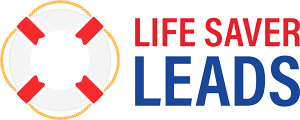Conducting expert interviews with industry leaders can provide valuable insights and perspectives. Here are some general tips on how to conduct effective expert interviews:

- Define Your Objectives:
- Clearly outline the goals and objectives of the interview. What specific information or insights are you seeking?
- Selecting the Right Experts:
- Identify individuals who have deep knowledge and experience in the relevant industry or field. Look for those who have made significant contributions or achievements.
- Prepare Thoughtful Questions:
- Develop a list of well-thought-out questions that will help you gather the information you need. Open-ended questions often elicit more detailed and insightful responses.
- Background Research:
- Familiarize yourself with the expert’s background, achievements, and recent work. This will help you ask more targeted and informed questions.
- Contact and Schedule:
- Reach out to the experts and request their participation in the interview. Clearly communicate the purpose and duration of the interview. Be flexible with scheduling to accommodate their availability.
- Choose the Right Format:
- Decide on the format of the interview. It could be a one-on-one conversation, a panel discussion, or even a written exchange, depending on what suits both parties.
- Build Rapport:
- Start the interview by building rapport. Briefly introduce yourself, explain the purpose of the interview, and express gratitude for their time and expertise.
- Active Listening:
- Pay close attention to their responses. Allow the conversation to flow naturally, and be prepared to follow up on interesting points they raise.
- Respect Time Constraints:
- Be mindful of the expert’s time. Stick to the agreed-upon duration for the interview, and ensure that you cover the key topics within that time frame.
- Follow Up:
- After the interview, send a thank-you note expressing your appreciation for their insights. If there are any follow-up questions or clarifications needed, don’t hesitate to ask.
- Transcribe and Analyze:
- Transcribe the interview for reference and analysis. Extract key insights and use them to inform your work, research, or any other relevant projects.
- Disseminate Findings:
- Share the insights gained from the interviews, whether through articles, reports, or presentations. Ensure that the valuable information reaches a wider audience.
Remember, the key to a successful expert interview lies in thoughtful preparation, respectful communication, and a genuine interest in learning from the expert’s experiences and knowledge.

Recent Comments